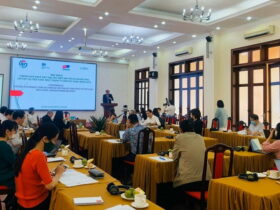The Thai government is intensifying its efforts to address the concerns arising from decreased rainfall and drought caused by the El Nino weather phenomenon, which is affecting the country’s agricultural sector. Prime Minister Srettha Thavisin, speaking after a special cabinet meeting, emphasized the government’s commitment to the agricultural sector and the well-being of its citizens. The government’s priorities include market expansion, increasing farmers’ income, enhancing farming efficiency, reducing production costs, promoting exports, and ensuring sufficient food supplies for domestic consumption.
The impact of El Nino on the farming sector is of particular concern, and the government is taking steps to gather information on El Nino’s impacts. These impacts will be discussed during the next cabinet meeting on September 13, with measures to address concerns expected to follow.
Prime Minister Srettha also announced his intention to conduct a two-day inspection trip to the Northeastern provinces of Khon Kaen, Udon Thani, and Nong Khai to assess the situation and listen to local concerns.

In addition to addressing agricultural challenges, Prime Minister Srettha emphasized the importance of cooperation between cabinet members and government officials in translating government policies into tangible results. He urged ministers to ensure that the promotion and career advancement process for officials remains fair and transparent.
The government’s transport infrastructure policy, which encompasses the comprehensive development of land, waterway, air, and rail transport, was also highlighted. The integration of the Bangkok mass-transit ticketing system will be pursued to enhance passenger convenience, and fare policies will be considered in line with the existing budget.
Kriengkrai Thiennukul, the chair of the Federation of Thai Industries, expressed concern about the worsening drought situation in Thailand. Accumulated rainfall between January and July was significantly lower than usual in all regions, with the Central Plains Region experiencing a 40% reduction compared to typical rainy season levels. Water levels in dams nationwide were critically low, particularly in the Central Region and the West, reminiscent of the severe drought in 2015. Kriengkrai stressed the need for the government to prioritize efforts to address drought and its impact on agriculture.
Visit Limlurcha, vice chair of the Thai Chamber of Commerce and president of the Thai Future Food Trade Association, echoed these concerns. He noted that El Nino would adversely affect various crops, including rice, cassava, rubber, maize for animal feed, oil palms, and fruit. Furthermore, severe El Nino effects could disrupt sugar production in Thailand, India, and Brazil, potentially leading to a significant increase in global sugar prices.












Leave a Reply